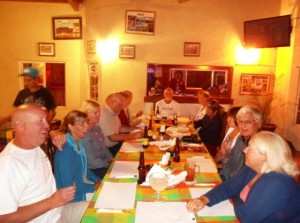
March 7, 2014 – We are sitting tonight at the Oak Creek RV Resort unwinding from our latest 28 day tour which ended today, we crossed the border around 10 am as our wait was relatively short. Our drive from the Sordo Mudo Campground at km 75 on Hwy 3 was very busy as lots of traffic has shifted from Toll 1 since that highway fell into the sea. Yesterday afternoon we went on our Wine Tour and Tasting at LA Cetto, Gilberto did an excellent job explaining the operation and the ins and outs of wine making. The tastings were mighty fine as well. That evening we had a final Happy Hour and Ruben dropped by to explain about Rancho Sordo Mudo and the operation of the school.
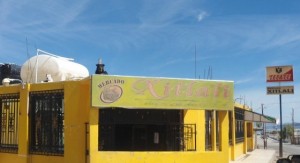
Unfortunately not everyone came across with us today because Connie & Les had a water pump problem when we arrived at the Baja Fiesta Restaurant on Day 27. They subsequently stayed behind to get that sorted out, if your going to break down, this is not a bad location. Cecila and both her sons speak excellent English (the sons are Americans) and always keen to help out, great Wi-Fi, a bank, many other services available and the location is secure. Judy & Bob and Rod & Barb also stayed behind, they have traveled together many times and just felt more comfortable keeping the group together. As I go to press we understand all issues are resolved and the 3 amigos are good to go and continue their tour with Dom & Diane. They head off to Sordo Mudo tomorrow and cross back into the US.
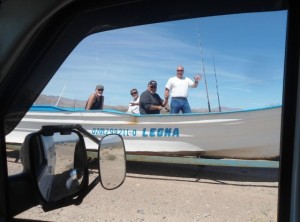
Our time in Bahia de Los Angeles was both restful and very enjoyable. The boys went fishing with Marcos and really hit paydirt, I have never seen so many Ling Cod caught by the group of 5. That night we had a big fish-fry, a happy hour, Antonio & Bety joined us and later we had fire, burning all the left over wood. Rod capped off the night with a new song he wrote and sang inspired by me when earlier on tour I asked Jitterbug “What were you licking before you were licking me?” It was a classic for sure. Everyone will cherish their memories of Bahia de Los Angeles, what a beautiful location.
Did you know?

Enrique Peña Nieto (Spanish pronunciation:[enˈrike ˈpeɲa ˈnjeto]; born 20 July 1966) is the current President of Mexico. His six-year term began in 2012 and he is a member of the Institutional Revolutionary Party (PRI), formally serving as governor of the State of Mexico from 2005 to 2011. Mexico’s last presidential election took place on 1 July 2012, and the initial, partial count issued that same midnight, the Federal Electoral Institute (IFE) announced that based on a fast vote counting, Peña Nieto was leading the election with 38% of the votes. His nearest competitor, Andrés Manuel López Obrador, was just 6 points behind him. The figures were meant to be a representative sample of the votes nationwide; but shortly after this announcement, Peña Nieto appeared on national television claiming victory. “This Sunday, Mexico won,” he said and then thanked his voters and promised to run government “responsible and open to criticism.” At the PRI headquarters in Mexico City, the victory party began. With more than 97% of the votes counted on election day, the PRI had won with about 38% of the votes, just 6.4 points above the leftist candidate López Obrador of the Party of the Democratic Revolution (PRD), who refuses to concede the results and has threatened to challenge the outcome.
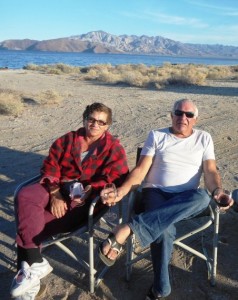
At a news conference, the leftist candidate Obrador claimed that the election was “plagued with irregularities” and accused the PRI of allegedly buying votes. He also claimed that the PRI handed out gifts to lure voters to cast their vote in favor of them. Nonetheless, the PRI denied the accusations and threatened to sue López Obrador if he persisted with these allegations. Peña Nieto vowed to imprison anyone – including members of the PRI – if they are found guilty of electoral fraud. Peña Nieto was subsequently declared president-elect after the 2012 general election was declared valid by the Federal Electoral Tribunal, amidst these accusations of electoral fraud. He took office on 1 December 2012, succeeding Felipe Calderón as president thereby marking the return to power of the party that ruled Mexican politics for 71 consecutive years. The final election results confirmed that Peña Nieto obtained 38.21% of the votes, followed by López Obrador with 31.59%. Josefina Vázquez Mota of the National Action Party (PAN) got 25.41% votes and Gabriel Quadri of the New Alliance Party (PANAL) 2.29%.

The day after his inauguration, he announced the Pact for Mexico, an agreement that he had struck with the leaders of two other major parties about the government’s goals for the next few years. On 13 December 2012, a law was approved that included far-reaching security reforms. Mexico’s Interior Ministry, greatly strengthened by the bill, has been made solely responsible for public security. A new gendarmerie, with an initial strength of 10,000, is being deployed to Mexico’s most dangerous areas, while the Federal Police will be focusing on investigating crime. The Interior Ministry announced that 15 specialized police units were being formed to exclusively focus on major crimes that include kidnapping and extortion, along with a new task force dedicated to tracking down missing persons.
The Early Years

Enrique Peña Nieto was born on 20 July 1966 in Atlacomulco, State of Mexico, a city 55 miles northwest from the country’s capital. He was the eldest of four siblings in a middle-class family; his father, Gilberto Enrique Peña del Mazo, was an electrical engineer; his mother, María del Perpetuo Socorro Ofelia Nieto Sánchez, a school teacher. Unlike many of Mexico’s past presidents, Peña Nieto did not study at an American university. He attended Denis Hall School in Alfred, Maine, during one year of junior high school in 1979 to learn English. People who knew him in his early years said that he was a sharp dresser, and told teachers at his school that he planned to be governor of the State of Mexico. During his childhood, Peña Nieto was referred to as “Quique,” a nickname short for Enrique. Peña Nieto distinguished himself in childhood for being courteous and tidy and well-groomed. His mother recalls how she would squeeze lime juice on Peña Nieto’s hair to keep his now famous hairstyle in place. Some neighbors in Atlacomulco recall that Peña Nieto was an “overprotected” kid. After living in Atlacomulco for the first 11 years of his life, Peña Nieto’s family moved to the city of Toluca.
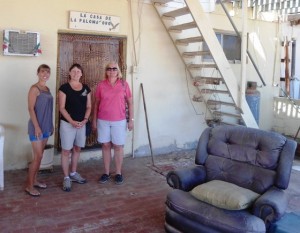
Peña Nieto said that he became interested in politics during elementary school, when he was picked as class leader and found inspiration in Carlos Slim. As a teenager, he became a fan of football and spent hours playing chess with his friends; he later learned how to drive his mother’s car and was given his first car. During adolescence, his father would often take him to the campaign rallies of the State of Mexico’s governor, Jorge Jiménez Cantú, a close friend of his. The successor of the governor was Alfredo del Mazo González, cousin of Peña Nieto’s father. During Del Mazo González’s campaign in 1981, the fifteen-year-old Peña Nieto had his first direct contact with Mexican politics: he began delivering election literature in favor of his relative, a memory Peña Nieto still recalls as the turning point and start of his deep interest in politics. In 1984 at the age of 18, Peña Nieto traveled to Mexico City and enrolled in the Universidad Panamericana, where he earned a BA degree in Law; he later went on to obtain a MA degree in Business Administration from Monterrey Institute of Technology and Higher Education (ITESM).
Politics
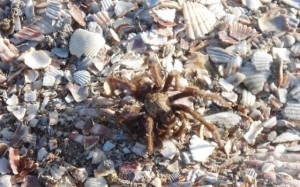
Enrique Peña Nieto joined the Institutional Revolutionary Party (PRI) in 1984, and with a law degree nearly completed, he began earning his own money. During his final years in college, Peña Nieto worked as a public notary in Mexico City, around the same time when his relative, Alfredo del Mazo González, was mentioned as a firm candidate for the 1988 presidential elections. In his twenties, he worked at the San Luis Industrial Corporation, an auto parts manufacturing industry, and at a law firm named Laffan, Muse and Kaye. While still a student at the Universidad Panamericana, he roomed with Eustaquio de Nicolás, the current president of Homex, a leading Mexican construction and real estate company. He also befriended and roomed with Luis Miranda, who occupied several offices during the 1999–2000 administration in the State of Mexico.
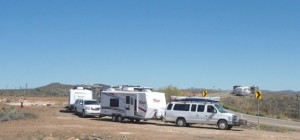
Peña Nieto’s academic thesis entitled “El presidencialismo mexicano y Álvaro Obregón” (translated in English as “Mexican Presidentialism And Álvaro Obregón”) expounds upon the comparison between the Mexican presidential system to that of parliamentarism. In the 202-page document, Peña Nieto argued that the administration of Benito Juárez was a “presidential dictatorship,” since he had a powerful executive force during the Reform War, which allowed him to have absolute political power. Peña Nieto interviewed several authors, including Jorge Carpizo, Héctor Fix-Zamudio, Enrique Krauze and Justo Sierra. Peña Nieto listed at least forty books in his bibliography. His work was dedicated to Arturo Montiel Rojas, the former governor of the State of Mexico and relative of Peña Nieto.
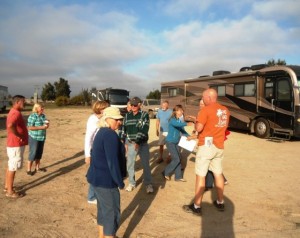
Upon graduating as a lawyer from the Universidad Panamericana, Peña Nieto sought a Master’s degree in the Monterrey Institute of Technology and Higher Education, based in the State of Mexico. By the side of Montiel Rojas, he formally started his political career and became the Secretary of the Citizen Movement of Zone I of the State Directive Committee of the National Confederation of Popular Organizations (CNOP), one of the three sectors of the PRI. For three consecutive years until 1993, Peña Nieto participated as a delegate to the Organization and Citizen Front in different municipalities of the State of Mexico. Between 1993 and 1998, during Emilio Chuayfett’s term as governor, Peña Nieto was chief of staff for the Secretary of economic development of the State of Mexico and the personal secretary of Montiel Rojas, who was the Secretary of Economic Development in the state. Peña Nieto served during the years 1999 to 2000 as the Sub-secretary of government, and as financial sub-coordinator of the political campaign of Montiel Rojas. In 2003, he was elected as deputy of the XIII Local District with a seat in Atlacomulco, State of Mexico.
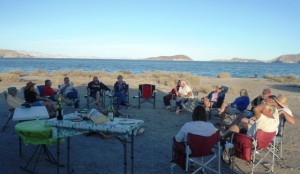
To be continued …….

